President Alberto Fernández was expected to put domestic tensions to one side during his near-week long European tour, but as he flies home to Argentina, he may have reignited them.
During his visit to Spain, Germany and France, Fernández was welcomed warmly by three high-profile heads of state, but his comments to the press in Madrid may ensure a colder greeting awaits him in Buenos Aires from a former president.
In an interview with Spanish daily El País during his stop to Madrid, the head of state once again ratified his government’s economic course – an approach that has been harshly criticised by Vice-President Cristina Fernández de Kirchner and a number of politicians and officials aligned with the former president.
Most intriguingly of all, however, Fernández – who has mostly kept his powder dry in the face of the onslaught – said his second-in-command wasn’t aware of the extent of the challenges facing Argentina.
"I think that [Cristina's] is a partial view, absolutely economic, that neglects everything that has happened to us in the middle. We are living through a pandemic, a tragedy that humanity experiences from time to time, that has taken six million lives in the world, [and] more than 100,000 Argentines. And yet, we managed to ensure that no Argentine was left without the medical care he or she needed," declared the president, defending his time in office.
Quizzed about his veep’s role in government, the Frente de Todos leader went on to say that Fernández de Kirchner “represents something significant in history, and in the present, she is the leader of an important space.”
He continued: “There are things where I do not share her view. I have also been publicly critical of her [2007 to 2015] government. Everyone knows that I have a different view. I respect what she says, but I ask them to respect what I say.”
Warming to his theme, Fernández then reiterated his leadership of the government.
"The president of the nation is the one in charge in Argentina. Since 2019 they have been saying that I would be a puppet of hers. But the truth is that I make the decisions. That doesn't mean that I don't listen to Cristina, that I despise her opinion. But I take the decisions.”
By Thursday, however, the president sought to roll back a little on his comments, blaming "a Spanish journalist" for trying to "get him in the ring with Cristina."
“ I don't have to fight and I don't want to fight with Cristina,” he added.
Whistlestop tour
President Fernández embarked upon his European tour on Monday, putting a great amount of distance between his domestic concerns, such as inflation and utility hikes, and internal coalition tensions.
The Peronist leader found himself on kinder terrain in Europe, where he met with Spain’s Prime Minister Pedro Sánchez and King Felipe VI, German Chancellor Olaf Scholz and, on Friday, France’s newly re-elected leader Emmanuel Macron.
The first stop on his trip was Madrid, where Fernández talked up the opportunities for Spanish firms in the growth sectors of Argentina’s economy, such as “tech, lithium, mining and green hydrogen," government sources said.
Argentina's debt restructuring deal with the International Monetary Fund, opportunities for grain exports and inflation were also discussed.
The week’s biggest headlines were perhaps made in Berlin, however, where Fernández and Chancellor Scholz held their second in-person meeting and Russia’s invasion of Ukraine led the agenda.
During a later press conference in which both leaders talked up economic opportunities – including the future exporting of gas from the Vaca Muerta shale foundation – and the importance of condemning Moscow’s actions, Argentina’s president expressed concern over the impact and worth of sanctions on Russia, explaining that they were impacting nations across the world, especially in Latin America.
The following day, perhaps clarifying his remarks, the president said in an interview that "Ukraine is the victim of Russian aggression," which he said "must stop as soon as possible."
Speaking as the trip got underway, sources close to the Presidency said that Argentina’s main diplomatic goal for the trip is to "develop presidential diplomacy with European leaders” and “to promote dialogue” between CELAC, which Fernández currently heads as pro-tempore leader, and the European Union.
The trip’s political objective, they added, is to “install Argentina as a secure and stable supplier of food and energy" amid the global turmoil resulting from Russia's invasion of Ukraine.
The crowning moment for Fernández may well have been Friday’s meeting with Macron. Argentina’s leader embarked on his trip without confirmation from Paris that he would receive facetime with the French leader, who he is said to admire.
Macron is one of the only European leaders who has travelled to Moscow following the invasion of Ukraine and that subject, as well as potential closer ties between CELAC and the EU, was top of the Argentine delegation’s list of priorities.










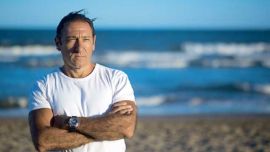
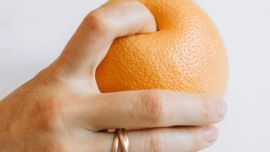

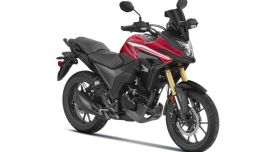






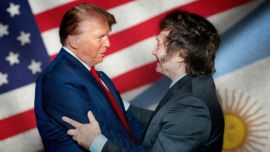
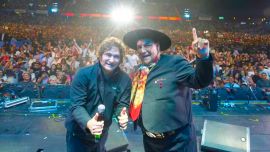
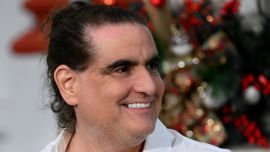
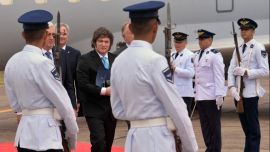
Comments